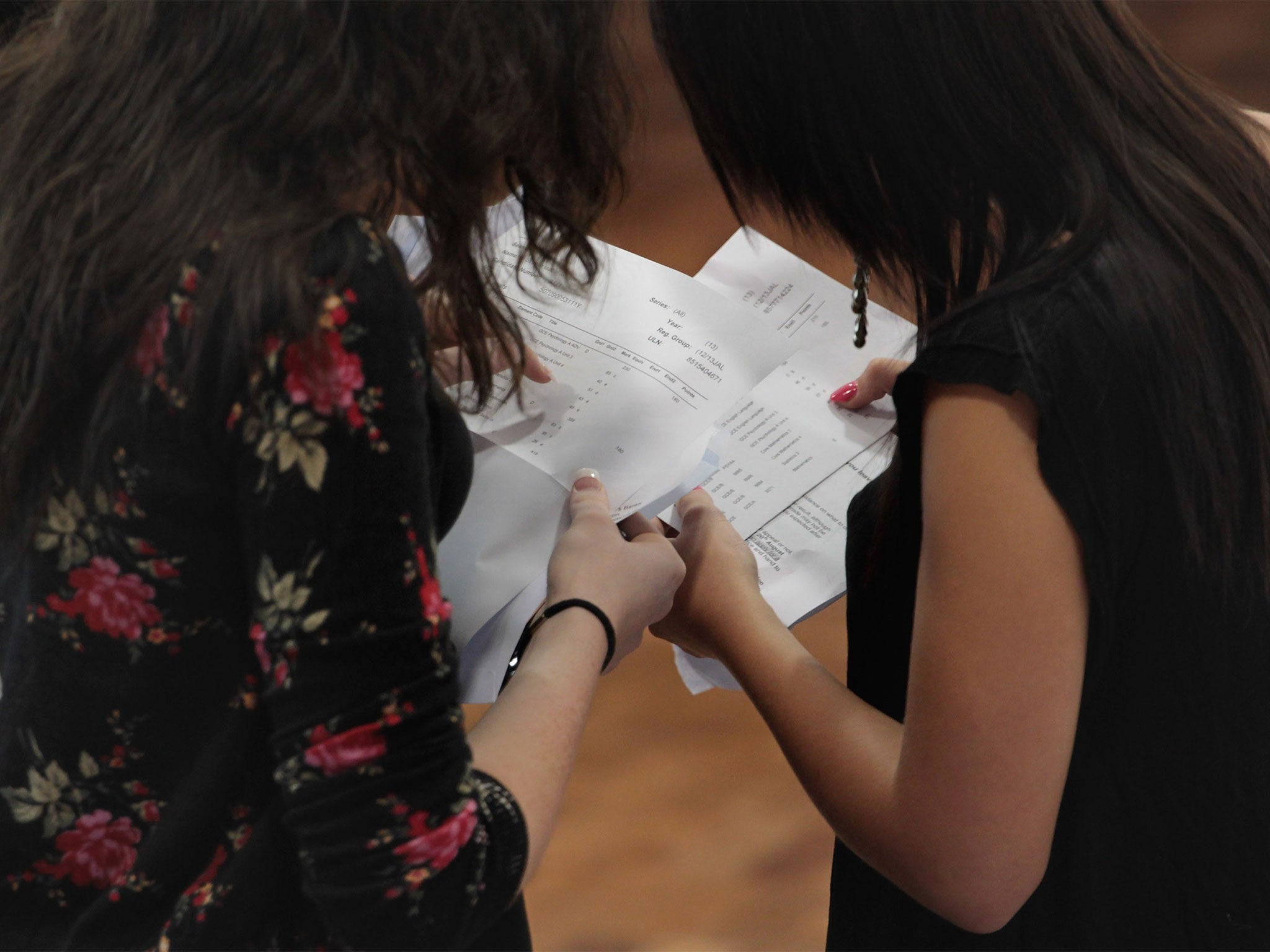A Level Results Day: There are other ways to meet your potential than essay marks and exam results
Allowing pupils to "run at their own pace" works out best in the end

As a headteacher of one of the top schools in the country, I’m often approached to comment on A Level results day. Despite the enviable results of the girls at North London Collegiate School, I have to say that I believe British children are over-tested.
With public examinations at 16, 17 and 18 years old, there is scant time for them to even begin to enjoy the subjects they’ve chosen. That is why the government reform which will scrap the AS exams, currently taken in lower sixth and worth half an A-level, is a good idea. Do we really have to examine students in every single year to ascertain how they are doing according to arbitrary scales? Teachers should be able to confidently assess and judge pupils progress and motivate them without the need for endless external testing.
Anna Popplewell, one of our students who starred in The Chronicles of Narnia film series, missed much of her GCSE and A-level years because of filming. But the teachers flew out to her, to Prague and then New Zealand (funded by Disney) and supported her through. That was her unique specialism – she was and is an actor. Anna got straight A* grades and went to Oxford.
When an international student in the care of a guardian became depressed and stopped coming in to school, the head of sixth form and her tutor went to see her every single day she missed class. We organised medical support for her mental health problems and a tailored programme of work. In the end she gained 43 out of 45 points in the notoriously challenging International Baccalaureate.
In an interview last week Mary Curnock Cook, the head of the Universities and Colleges Admissions Service, warned that a degree was no longer a passport to a good job. Graduate employers want their new recruits to show they are more than an increasingly common 2:1. The fact of the matter is that putting a child in charge of their destiny is not a case of academic hot-housing; it is a case of investing in extracurricular activities that will allow them to stand out from the crowd on job applications – and in their personal lives – in future. At the last count, my own school ran 50 different societies ranging from sport, politics and fashion to economics, fashion and poetry. Their participation in and enjoyment of these activities, and the lessons they learn from them, are as important as their academic study.
It comes as a surprise to many people that a high achieving school like North London Collegiate does not give pupils’ marks out in rank order or hold academic prize-givings until the girls finally leave at 18. I have found that fostering a pupil’s intellectual potential is done best when shifting the focus away from essay marks and exam results.
Allowing pupils to “run at their own pace” is central to my educational ethos. If a pupil is struggling within the confines of the school, take the school to her. If a pupil’s talents lie outside of the rigidly prescribed spectrum of “English Baccalaureate” A Levels, then give her the space to pursue them. The best way to get the most out of a person is to make them confident in their own interests.
Join our commenting forum
Join thought-provoking conversations, follow other Independent readers and see their replies
Comments